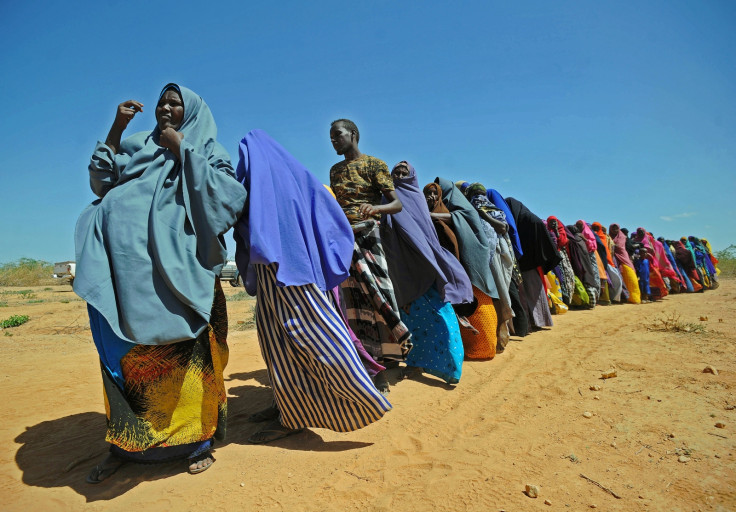Corruption prevents agencies from delivering aid to those most in need in Somalia, warns NGO
Integrity of Somalia's humanitarian sector must be strengthened, says Transparency International NGO.
The Somali government, donors and humanitarian agencies are failing to address corruption when delivering aid across the war-torn country, a prominent NGO has said.
While Somalia continues to be on a positive political trajectory after decades of political turmoil, the United Nations (UN) in September said that the number of Somalis facing hunger had risen to five million, or 40% of the population, due to failed rains and subsequent drought and poor harvest, floods, ongoing conflict and continued displacement of millions in the country. Some 320,000 children under the age of five are acutely malnourished, of which 50,000 are severely malnourished.
Transparency International, the global anti-corruption organisation, on 13 December warned that, in order to ensure humanitarian assistance and livelihood support reaches those most in need in southern Somalia, integrity of Somalia's humanitarian sector must be strengthened.
The second-to-lowest ranked on Transparency International's Corruption Perceptions Index, corruption is deeply entrenched in Somalia's economy and society including the humanitarian sector, the NGO said in its latest report.
"Corruption affects all sectors in southern Somalia – and humanitarian assistance is no exception. But this is not a reason to reduce aid funding, rather it is a call to strengthen measures to mitigate the risks and ensure that the resources are used for their intended purpose: to alleviate the suffering of the most vulnerable," Samuel Kimeu, Transparency International Kenya's executive director, said.

Corruption risks span all aspects of aid, including the identification of local partners and awarding of contracts to private contractors and humanitarian agencies, when contracts values may also be inflated to include kickbacks.
The most commonly acknowledged areas of risk and corruption remains the selection of aid recipients, whereby geographic areas or family and friends are favoured, effectively creating so-called "ghost" beneficiaries.
Conditions for access to affected communities are also threatened by corruption as they often require some form of concession or payment – paying at checkpoints or unofficial taxes burdens.
"Some examples of good-practice among individual agencies exist such as detailed analysis of the operating context, increased scrutiny of private contractors and better communication with the local population. Yet more comprehensive and coordinated action across all stakeholders is needed. Anti-corruption efforts need to be re-doubled across the board," Kimeu said.
The NGO did not estimate the overall percentage of losses due to corruption. According to Global Humanitarian Assistance, total assistance to Somalia in 2013 was $861m, of which $458m was for humanitarian assistance.
What are Transparency International's recommendations?
The Somali government should:
- Develop and implement strategies and policies to increase the integrity of humanitarian assistance.
- Improve humanitarian access to vulnerable populations in southern Somalia.
Donor agencies should:
- Take concrete measures to protect humanitarian action from political interference and increase the impartiality of assistance.
- Develop shared approaches to managing risks which may encourage transparent reporting.
Humanitarian aid agencies should:
- Be open, principled and supportive in addressing corruption pressure and threats and actively encourage staff to report irregularities.
- Integrate corruption risk analysis in risk management processes and develop, and review existing, monitoring tools and mitigation measures.
- Report transparently any requests for facilitation payments and seek joint multi-agency positions on administrative blockages.
- Invest in greater staff skills in understanding local culture and power structures, and in communicating effectively with affected communities.
© Copyright IBTimes 2025. All rights reserved.






















